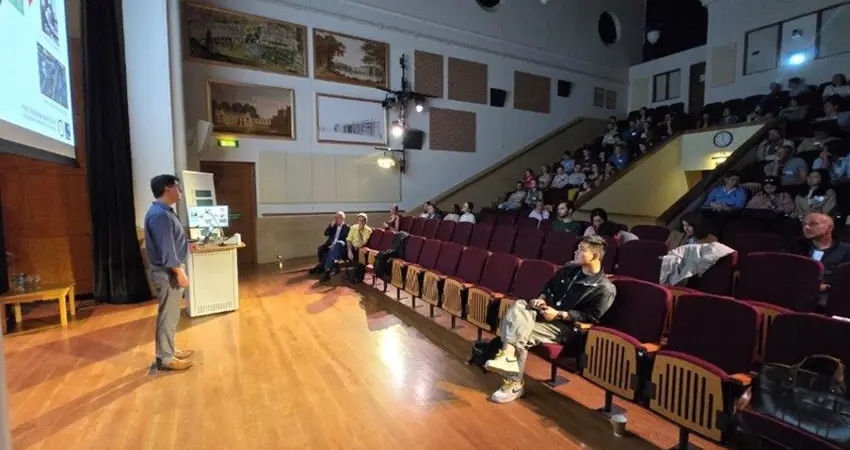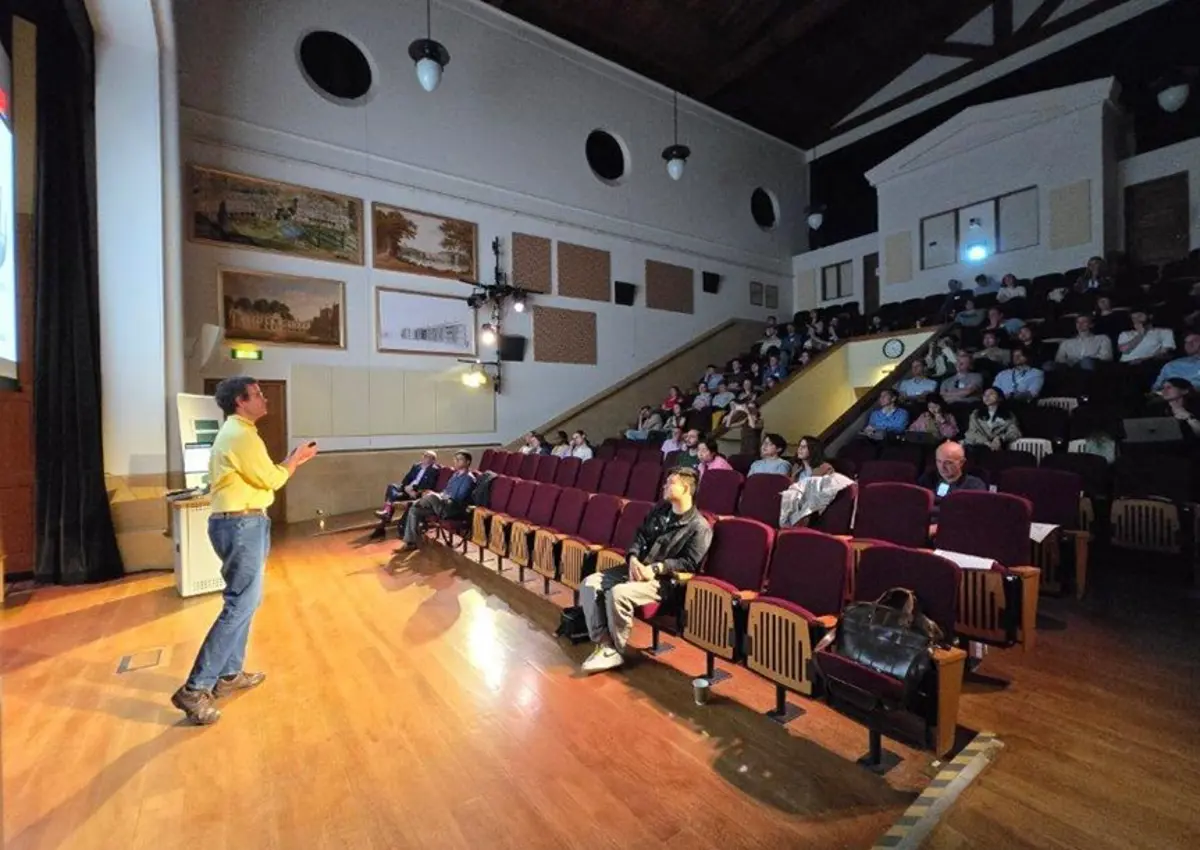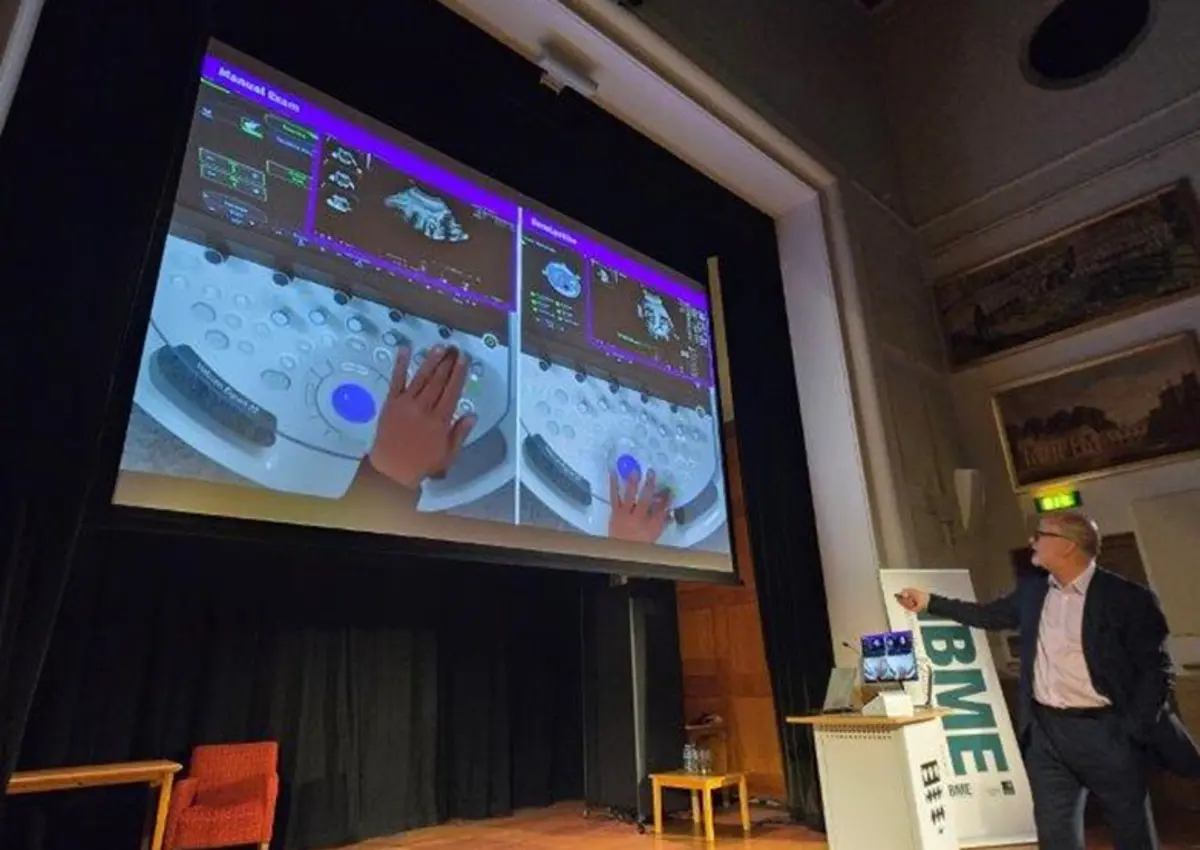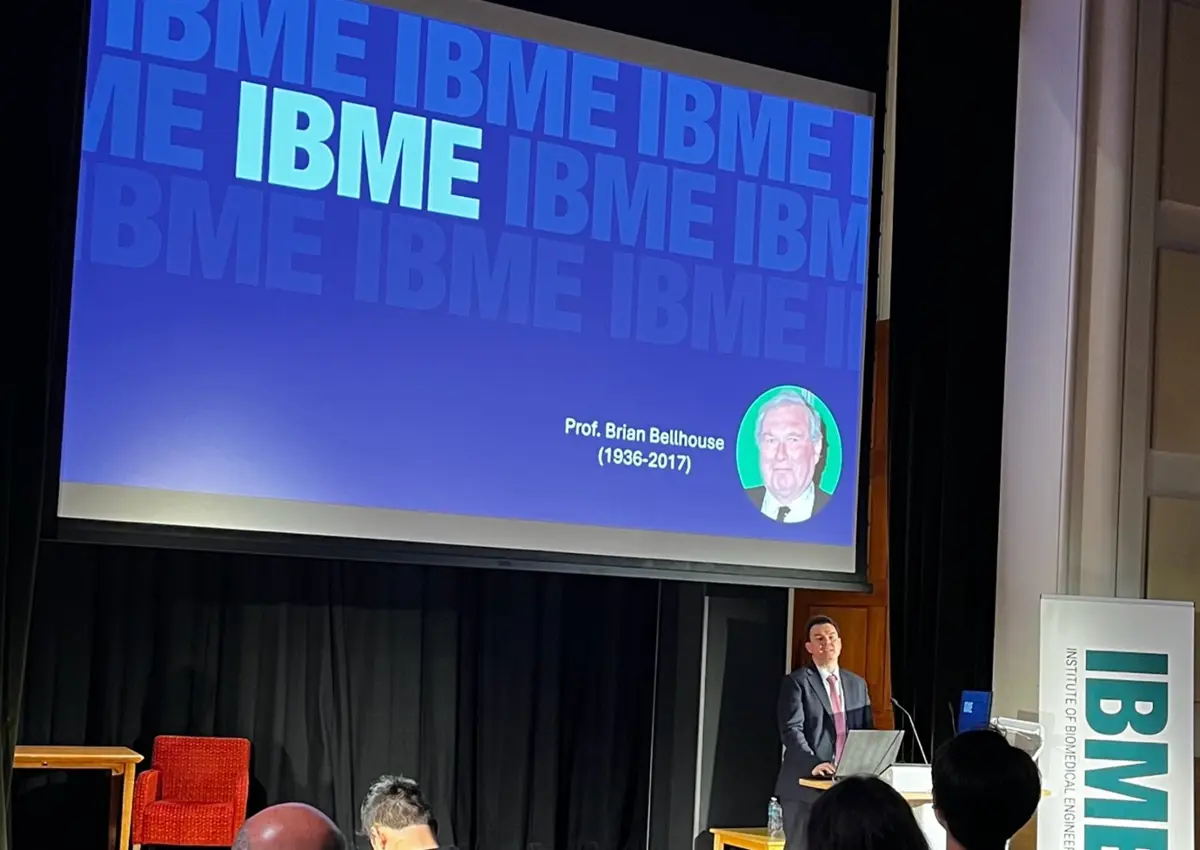13 Jun 2025
IBME hosts Bellhouse BioEngenuity Keynote Lecture
The IBME Bellhouse BioEngenuity Keynote Lecture was held on Monday 2nd June at Magdalen College with a focus on the use of Digital Twins and AI in Cardiovascular and Foetal Medicine

Prof. Mauricio Villaroel during his lecture at the IBME Bellhouse BioEngenuity event describing applications of AI for cardiorespiratory assessment in neonatal intensive care
The biannual event is made possible through a generous endowment by the family of Prof. Brian Bellhouse and serves an important function of providing training and networking opportunities to early career researchers in biomedical engineering. Each BioEngenuity event comprises a keynote presentation to bring key opinion leaders in biomedical engineering from around the world to Oxford, and research presentations by faculty to illustrate the breadth and depth of the research taking place at the Institute of Biomedical Engineering (IBME).
The first lecture of the event titled, “Scanning the Horizon: using AI in ultrasound for fetal health” was delivered by Professor Aris Papageorghiou, Professor of Fetal Medicine and Director of Research of the Oxford Maternal and Perinatal Health Institute, and showcased the application of AI to enhance ultrasound imaging and diagnoses in the context of foetal medicine. Deep learning using big data was described for the purpose of the detection of congenital birth defects to ensure babies can be born safely and in the most suitable environment. The use of artificial intelligence (AI) to guide ultrasound image analysis to estimate gestational age was shown and the technique highlighted as particularly useful in late pregnancy and underserved regions. Substantial progress has been made over time to improve quality, time requirements and ultimately contribute towards more equitable access to healthcare.
Professor Mauricio Villarroel, Associate Professor of Biomedical Engineering (Podium Institute) and Fellow of Magdalen College, presented on “cardiac electrophysiological models and explainable artificial intelligence for sports-related sudden cardiac death in adolescents and young adults.” He described his own professional journey from translational research, which focused on adapting health technology for use in lower- and middle-income countries, to his current work at the Podium Institute. Specifically, his current research focuses on determining the optimal dose of exercise based on the physiological condition of the athlete and aims to reverse the effects of sports-related cardiac arrhythmia. Other applications include the detection and prediction of the onset of chronic disease in children and adolescents.
The keynote lecture was delivered by Professor Pablo Lamata, the Director of the Centre for Doctoral Training in Digital Twins for Healthcare and group leader of the Cardiac Modelling and Imaging Biomarkers group at King’s College London. The lecture titled, "How to sense cardiac filling pressure without touch? Physics, maths and models”, was a tour-de-force linking the basic physics and fluid mechanics of cardiac blood flow to its impact on heart physiology and subsequent potential pathological developments. His presentation also showcased the use of digital twins for longitudinal modelling of specific and rare health events, and evidenced the utility of techniques such as contrast-enhanced ultrasound using microbubbles to verify digital twin predictions and further refine the predictive ability of the models. Modelling and imputation using digital twins offers healthcare researchers an opportunity to use existing data to infer what cannot be measured, such as disease trajectories.
Professor Constantin Coussios OBE FREng FMedSci, Director, Institute of Biomedical Engineering and Statutory Chair of Biomedical Engineering, reflected on the 10-year anniversary of the Bioengenuity Keynote series: “Over the past decade, Bioengenuity keynotes have evidenced the impact of biomedical engineering across all aspects of human health: from the inaugural 2016 lecture delivered by Dr Brad Wood of the NIH on interventional oncology for abdominal cancers, to neuromodulation in the brain and recovery from blast injury in the lower limbs, and everything in between. It therefore seems befitting that this 10th year anniversary edition dealt primarily with matters of the heart: Pablo Lamata delivered a masterclass showcasing the significant advances in modelling and artificial intelligence that enable improved understanding and prediction of cardiac disease, whilst Aris and Mauro took us from womb through adolescence to maturity and the ability of new technologies to optimise workflow for clinicians whilst improving outcomes for patients.”

Prof. Pablo Lamata during his keynote lecture at the IBME Bellhouse BioEngenuity event describing relative pressure in the aorta assessed using microbubbles.

Prof. Aris Papageorghiou during his lecture at the IBME Bellhouse BioEngenuity event demonstrating the use of AI for guiding gestational ultrasound image analysis.

Prof. Constantin Coussios introducing the IBME Bellhouse BioEngenuity lecture series and keynote speaker.




